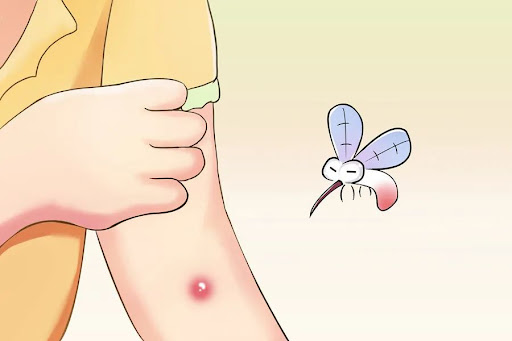Mugwort (Artemisia argyi) is widely used in traditional Chinese medicine and folk medicine. It not only has medicinal value, but is also believed to repel mosquitoes. But can mugwort really repel mosquitoes effectively? This article will discuss the chemical composition, mosquito repellent principle, scientific research and usage of mugwort in depth.
Mugwort is a perennial herb of the genus Artemisia in the Asteraceae family, mainly distributed in eastern Asia, parts of Europe and parts of North America. The whole plant of mugwort has a special aromatic smell, its leaves are dark green, and it blooms in summer. It often grows in fields, roadsides or mountain grass.
In traditional Chinese medicine, mugwort is believed to have the effects of warming the meridians and dispelling cold, removing dampness and relieving pain, and is widely used in moxibustion therapy. In addition, wormwood is often used as a spice, incense or traditional Chinese medicine material, and is believed to purify the air and repel mosquitoes and other pests.
The mosquito repellent effect of wormwood is mainly attributed to the various volatile compounds it contains, such as eucalyptol, thujone, camphor and volatile oils. These ingredients can release special odors, which have a certain irritating and repellent effect on mosquitoes.
Eucalyptol: It has antibacterial, anti-inflammatory and insect repellent effects, which can interfere with the olfactory system of mosquitoes, making it difficult for them to perceive human odor.
Thujone: A neurotoxic terpene compound that affects the nervous system of mosquitoes, making them unwilling to approach.
Camphor: An organic compound with a strong odor, commonly used in insect repellent products, which can inhibit the activity of mosquitoes.
Volatile oil: The smoke produced when wormwood is burned contains a variety of organic compounds, which can form a repellent barrier in the air to keep mosquitoes away.
After burning wormwood, the active compounds in its smoke will diffuse in the air, covering a certain range and interfering with the olfactory perception system of mosquitoes, thereby reducing mosquito bites on the human body. In addition, the heat and smoke generated by the combustion can also directly disperse mosquitoes and keep them away from the activity area.
At present, scientific research on the effect of wormwood mosquito repellent is limited, but some experimental data support its certain mosquito repellent ability.
Some experiments have shown that wormwood extracts have a repellent effect on mosquitoes. For example:
A 2016 study found that wormwood volatile oil can effectively reduce the frequency of mosquito bites, especially for vector mosquito species such as Aedes aegypti and Anopheles.
Another experiment in 2020 evaluated the effect of wormwood fumigation on mosquitoes. The results showed that after burning wormwood in a closed room, the activity of mosquitoes was significantly reduced, but the effect decreased in a ventilated environment.
Compared with other plants (such as lemongrass, mint and citronella), wormwood's mosquito repellent ability is slightly weaker, mainly because of its lower concentration of active ingredients. However, the smoke from its burning can temporarily reduce the activity of mosquitoes, so it can still play an auxiliary role in repelling mosquitoes within a certain range.

Burning wormwood is the most traditional method of repelling mosquitoes. The specific steps are as follows:
Take an appropriate amount of dry wormwood, light it and let it burn slowly to produce smoke.
Let the smoke diffuse in the room for a few minutes, and pay attention to keep the air circulating.
Burn wormwood in places with more mosquitoes (such as windows, doorways, balconies) to increase the mosquito repellent effect.
Precautions:
Do not burn wormwood for a long time in a confined space to avoid excessive smoke and respiratory discomfort.
People who are allergic to smoke or have respiratory diseases should avoid using this method.
Wormwood essential oil can be used to make homemade mosquito repellent spray, the method is as follows:
Take 5-10 drops of wormwood essential oil and add 100ml of distilled water.
You can add an appropriate amount of alcohol or glycerin to enhance volatility.
Put it into a spray bottle and spray it evenly on the skin or indoor environment.
Scope of application:
Can be sprayed on skin, clothing, mosquito nets, curtains, etc. to enhance the mosquito repellent effect.
Suitable for outdoor activities such as camping, fishing, etc.
Make wormwood bags or fill pillows with dried wormwood and place them at the head of the bed, doors and windows or other places where mosquitoes are likely to breed, which will help reduce mosquito infestation.
After burning wormwood, the mosquito repellent effect only lasts for a short time, and mosquitoes may re-enter the activity area after the smoke dissipates.
The main function of wormwood is to repel mosquitoes, not to kill them, so it cannot completely replace other mosquito prevention measures, such as mosquito nets, electric mosquito swatters, mosquito repellents, etc.
Some people may have allergic reactions to wormwood smoke or essential oils, so a small-scale test should be conducted before use.
Mugwort does have a certain mosquito repellent effect, mainly by releasing volatile substances and burning smoke to interfere with the olfactory system of mosquitoes and keep them away from the human body. However, its mosquito repellent effect is milder than chemical mosquito repellents and has a limited duration. Therefore, it is recommended to use it in combination with other mosquito repellent measures to achieve a better mosquito repellent effect. If you want to prevent mosquito bites more effectively, you can consider combining mugwort with other natural mosquito repellent plants (such as lemongrass, mint) or physical protection measures to enhance the mosquito repellent effect.
animal tags: mosquitos
We created this article in conjunction with AI technology, then made sure it was fact-checked and edited by a Animals Top editor.